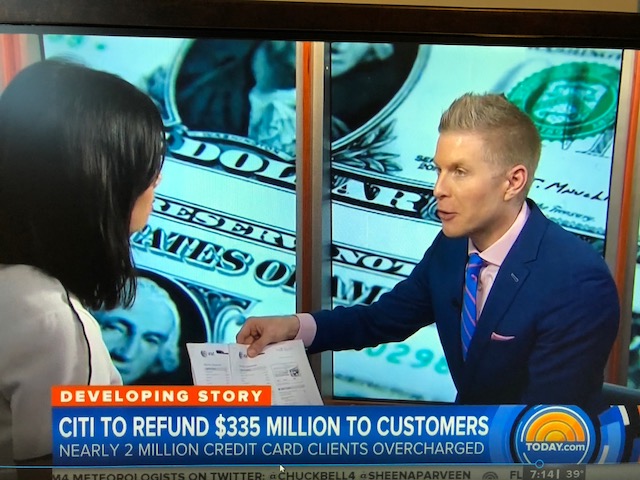
Tax Season 2021 is here- and that means you may be asking- Should I put my taxes on a credit card? For those of you who love racking up airline miles or earning cash back, paying your taxes on a credit card might be too appealing to pass up. For others, this may be a great way to stealthily increase your cost of taxation, or worse, letting taxes spiral your debt out of control. Should you be paying your taxes with a Credit Card?
Should You Pay Taxes With A Credit Card?
Or is paying taxes with a credit card a costly mistake?
By David Rae Certified Financial Planner™, Accredited Investment Fiduciary™
Let me just say this may be a case of doing as I say, not as I do. Sometimes I pay my taxes with a credit card. GASP. I do it for convenience, and more importantly, to rack up airline miles. But this convenience and miles do come at a cost in processing fees. Because I always pay the total statement balance on my credit card each month the cost stops there. This strategy will NEVER work if you are going to end up carrying a credit card balance.
For me, as the fun financial planner, it boils down to airline frequent flyer status. I fly a bit, but not enough to have top tier status. Hitting spend thresholds on my credit cards gives me an extra 30,000 medallion qualifying miles which helps bump me up a status level. I have to pay a 1.87% credit card processing fee to be able to pay my taxes with a credit card. This fee will mostly mean any value I accrue from miles will be a wash. It is the threshold bonuses that put me ahead. My credit card gives me additional BONUS miles if I spend above certain levels throughout the year. This skews the math in favor of using a credit card at least in my case.
My husband and I were able to fly first class to Europe pre-pandemic. We used miles and ended up getting well above 1.87 cents per mile of value. The convenience of paying with a credit card is nice but sending a check every quarter is not that big of a deal or inconvenience. Lie flat seats are enticing, but this choice will not work well for everyone.
Here are a few things to consider before putting your tax bill on a credit card.
What fees will you incur paying taxes with a Credit Card?
The IRS is barred from paying credit card processing fees. So, to pay your taxes with a credit card you will end up having to pay these fees. A quick check on the IRS payment site shows the fees currently range from 1.87 to 1.99%. If you are getting 2% cash back that’s hardly worth the effort to try and arbitrage a 0.001% additional cash back. That means that if you had a $10,000 tax bill, you would only net $10 of extra value. On the other hand, for mileage maximizers, these extra miles will put you closer to your next free flight. You may be able to get an extra 1-4% of value when redeeming miles. That ends up being an extra $100-400 in potential value on that same $10,000 tax bill.
Paying State taxes – The credit card fees will vary from state to state. Check with your state tax authority. You may also be able to pay for things like property taxes on your credit card. Be sure to check with your local assessor to see what fees you will incur there. The higher the fees, the less likely putting taxes on a credit card will make sense.
Will you be able to pay the bill without accruing expensive interest charges?
If you end up with a surprisingly large tax bill it might be tempting to whip out the credit card. If you will not be able to pay the bill off in full before owing interest, you could end up paying thousands of dollars in credit card interest charges. Keep in mind that the IRS does offer payment plans with an interest rate that is generally much lower than typical credit card interest rates.
Paying the IRS on a payment plan will mean you pay extra interest and penalties. All totaled, this will be about ½ to ¼ of what many credit cards would charge. Would you rather pay back a loan at an interest rate of say 6-7%, per year, or 15-30%, per year?
The caveat here is there are upfront costs to set up a payment plan with the IRS. So, if you have a low-interest credit card or you are confident you can pay off the debt in a month or two you may come out ahead by putting it on a credit card. Crunch the numbers and be 100% sure you can get it paid off quickly. Once the tax bill is on a credit card, the opportunity to set up a payment plan with the IRS will be lost.
Mileage Junkies Can Win Big paying Taxes with Credit Cards
If you are a mileage junkie, churning through credit cards to rack up sign up bonuses, tax payments may be a good way to hit those pesky spending thresholds. Let’s say you get a new AMEX and have to spend $5,000 in the first 3 months. Paying your taxes with that card could be a way to get a generous sign-up bonus. The bonuses often range from 50,000-100,000 miles/points whatever benefit corresponds with the card.
Without the spending or threshold bonuses, paying your taxes on a credit card will not likely be that rewarding. The fees you pay will most likely wipe out most of the value of the miles you accrue so you will want to take a look at how much you think those points or miles are worth. Compare that to the fees you will have to pay to use a credit card.
If you are saving up for a big trip, and just need a few extra miles, it may be worth the hassle to use a credit card just to get over the hump and have enough miles to buy that ticket. I’m picturing an engaged couple needing a few extra miles for a dream honeymoon.
Where does this all leave you- Taxes Credit Card?
The bottom line is if you are just trying to keep things simple, pay with a check or bank transfer. If you handle your money well and love to travel, this extra spending might just get you onto your next big trip faster. Just make sure you aren’t racking up credit card interest. Otherwise, you may have the miles to fly, but you won’t have any money left to eat today, or while traveling.
Live for Today, Plan for a Richer Tomorrow.

DAVID RAE, CFP®, AIF® is a Los Angeles Certified Financial Planner with DRM Wealth Management. A regular contributor to Forbes.com, Advocate Magazine, Huffington Post, Investopedia not to mention numerous TV appearances. He helps smart people across the USA get on track for their financial goals. For more information visit his website at www.davidraefp.com
4 Crucial Tips to Avoid an IRS Audit via Financial Planner LA
Taxes Credit Card originally published by Financial Planner Los Angeles on Forbes.com










[…] what to do with it? For many of you that tax refund may be thousands of dollars. Carrying some credit card debt? Tired of those annoyingly high-interest rates? You might want to get a leg up paying that debt off […]
[…] example, Medical expenses, a donation to charity, volunteering. It pays to take a look at your credit card statements and bank account for the money you […]
[…] Should You Ever Pay Your Taxes with a Credit Card? […]